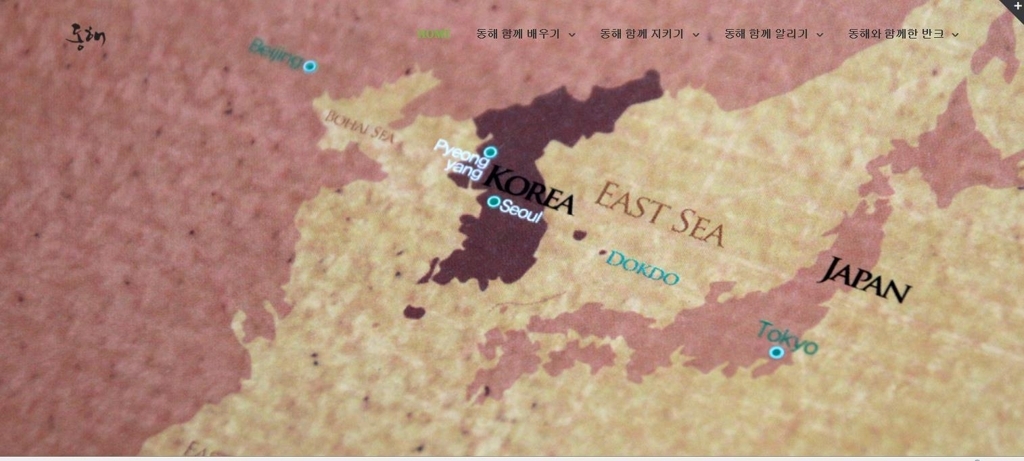 |
(Voluntary Agency Network of Korea) |
An international organization on maritime data is expected to adopt new guidelines later this year to refer to all seas by numbers, rather than specific names, officials said Monday, a move expected to affect a long-running dispute between South Korea and Japan over what to call the East Sea.
The International Hydrographic Organization (IHO) plans to brief its member states on the results of discussions about how to revise the "future of limits on oceans and seas," known as "S-23," at the upcoming general assembly slated for Nov. 16, according to foreign ministry officials and the IHO website.
At the assembly, IHO Secretary General Mathias Jonas is expected to ask members for consent on his proposal that calls for the development of a new dataset to designate global sea areas by "a system of unique numerical identifiers."
Under the existing S-23 standard used for world map production, the body of water between the Korean Peninsula and the island nation is identified as the "Sea of Japan," as registered by Japan in the early 1920s, when Korea was a Japanese colony.
Seoul has long campaigned for its own name, the East Sea, or using both names at the same time, arguing that the Sea of Japan is a legacy of Tokyo's imperialistic past, including the 1910-45 colonization of the Korean Peninsula.
Once implemented, the IHO revision, also known as "S-130," is expected to help ease the dispute between Seoul and Tokyo on the naming of the East Sea, as it may undercut Tokyo's argument for the Sea of Japan, with the country having made the case for it based on the IHO's naming.
The proposal came after the IHO held informal consultations with concerned member states, including the two Koreas and Japan, last year but failed to reach a conclusion on the issue.
Member states are widely expected to adopt the proposal by consensus.
The naming of the East Sea has long been a thorny issue between the two Asian neighbors, among others that stem from colonial history, particularly because Japan continues to lay territorial claims to the South Korea-controlled islets of Dokdo that lie in the East Sea.
Most member states, including South Korea, Japan and the United States, have positive views about the digitalization of global sea areas.
In the statement submitted to the IHO, South Korea expressed support for the new proposal on digital coordinates. It agreed that the existing S-23 is "outdated" and "is no longer suitable to serve as a valid standard for modern hydrography."
Japan said it understands the IHO efforts to modernize the hydrographic information and is "prepared to work cooperatively and constructively."
But observers question how much impact the IHO's renaming of the seas in numbers will have on reshaping people's common knowledge on sea names that are familiar and widely used.
The government is planning to continue its efforts to persuade foreign countries and related non-governmental organizations for either the sole or dual use of the East Sea name, irrespective of the IHO revision. (Yonhap)







![[Today’s K-pop] Blackpink’s Jennie, Lisa invited to Coachella as solo acts](http://res.heraldm.com/phpwas/restmb_idxmake.php?idx=644&simg=/content/image/2024/11/21/20241121050099_0.jpg)
